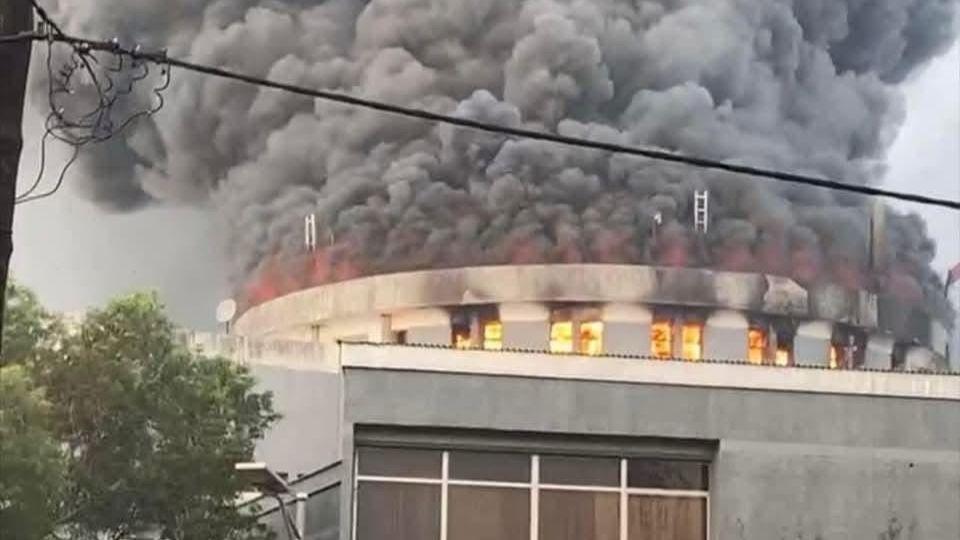The dramatic events unfolding in Liberia’s political landscape have taken a troubling turn following a devastating fire at the Capitol building, which houses the nation’s legislature. Early Wednesday morning, residents of Monrovia encountered a scene of thick black smoke and flames engulfing the structure, specifically destroying the entire joint chambers of the House of Representatives. Fortunately, no individuals were in the building at the time of the fire, but the incident has sparked serious questions and a police investigation, involving key lawmakers, including the embattled Speaker Jonathan Fonati Koffa and Representative Frank Saah Foko.
The timing of the fire has raised eyebrows, occurring just a day after a protest aimed at ousting Speaker Koffa intensified. This protest resulted in the arrest of several participants, including an aide to former President George Weah, indicating the high tensions surrounding Koffa’s leadership. Police chief Gregory Colman confirmed that Koffa and Foko were among four individuals brought in for questioning regarding the fire. Foko’s involvement comes under scrutiny due to his prior Facebook remark that suggested a willingness to see the chambers burned if certain conditions were not met, which he made shortly before the incident.
Police Chief Colman is particularly focused on clarifying Foko’s threatening statement and the implications it carries, especially given the fire’s onset a day later. He has also indicated that Koffa’s social media activity during the protests requires scrutiny. As investigations unfold, Koffa and Foko have yet to publicly address these allegations or the police chief’s comments regarding their involvement. This silence raises further questions regarding their potential connections to the incident.
Adding to the complexity of the situation, the Liberia government has offered a reward of $5,000 for information regarding the fire, reflecting a high level of concern and the urgency of uncovering the circumstances surrounding the blaze. President Joseph Boakai expressed disappointment over the incident and has commanded security agencies to pursue a thorough investigation. His calls for accountability underscore the serious implications of the fire in a nation already grappling with political discord.
The power struggle within Liberia’s House of Representatives has reached a boiling point, with factions claiming to have removed Speaker Koffa from his position, while others resist the move, deeming it unconstitutional. The internal conflicts have perplexed many, and a ruling from the Supreme Court has done little to resolve the ongoing dispute, further highlighting the legislative instability faced by the country. The fire incident serves as a stark manifestation of the deepening divide and turmoil within Liberia’s political framework.
As the investigation into the Capitol fire progresses, many are left to ponder the implications of these events not only for Koffa and Foko but also for the broader political landscape in Liberia. With the upcoming decisions of security agencies and potential ramifications stemming from the protests and legislative infighting, the situation could lead to further unrest, emphasizing the need for stability in a nation struggling with its democratic processes. The unfolding narrative promises to be pivotal for Liberia’s governance, and its effects may resonate far beyond the burning of a building, possibly influencing the future of leadership and political accountability in the region.

